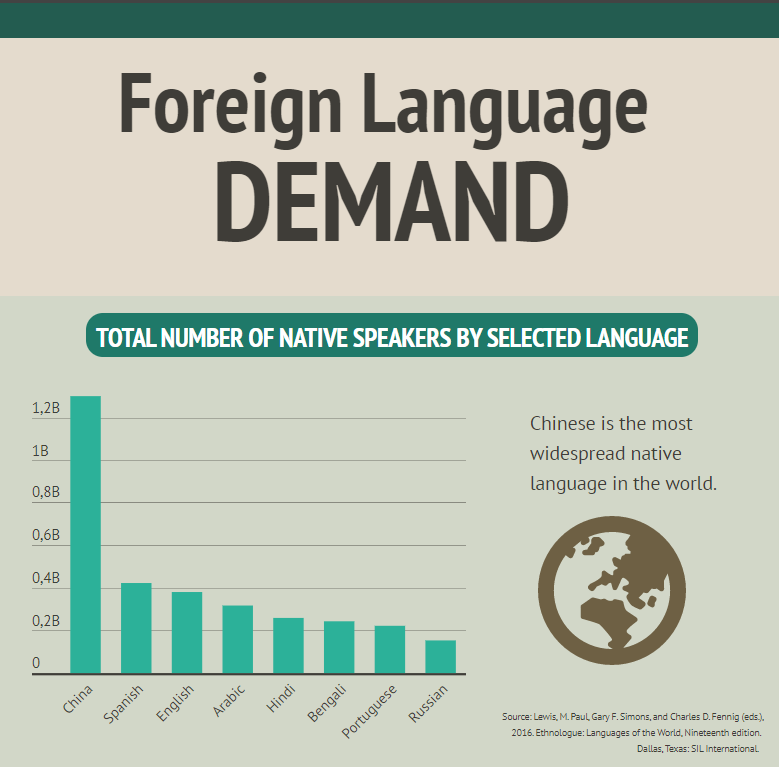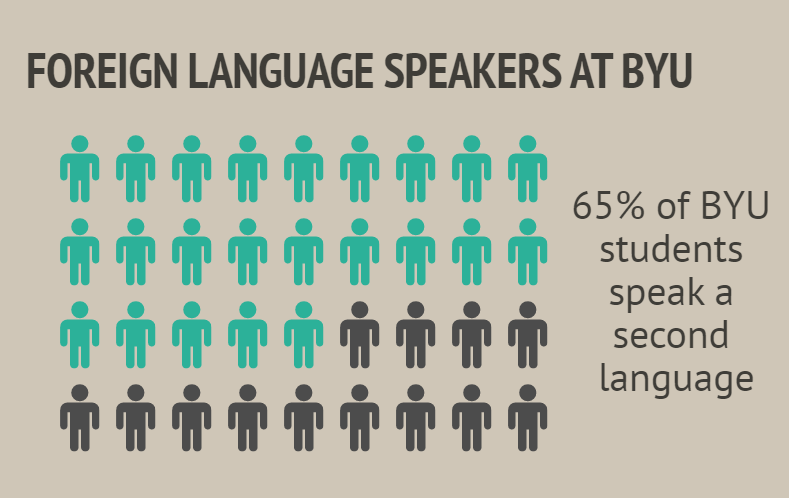
Editor’s note: This story pairs with ‘BYU foreign language residence celebrates 25 years’
BYU alumn Nate Miller started studying Spanish in high school out of curiosity. Learning a second language had always piqued his interest, but he never anticipated using it in his future career.
Now, Miller will be starting a new job in April at Facebook as a data scientist and will work with data from Facebook’s mobile phone partners in Latin America.
Facebook was looking for someone who spoke either Spanish or Portuguese — in addition to English — who also had skills in math and statistics.
“Honestly, I got lucky. It’s a rare combination,” Miller said.
Miller served an LDS mission in Peru and continued studying Spanish through a minor at BYU while completing his undergraduate degree.
“I loved learning the language. I loved becoming fluent,” Miller said. “I worked a couple of summer jobs with Latin Americans where I got to employ my language skills.”
Knowledge of a second language isn’t critical for a data scientist as most of the languages programmers work with are written in English, according to Miller. However, other fields of work have seen a rise in demand for foreign languages.
Growth in demand

The global economy is shifting away from the English-speaking world, according to the U.S. Council on Foreign Relations.
The report reads: “Since 1975, the English-speaking share of global GDP has fallen significantly and will continue to fall. The Chinese economy will surpass the US economy in size soon after 2030. Latin America (Spanish- and Portuguese-speaking) and South Asia (Hindi- and Urdu-speaking) are growing strongly as well.”
As individual countries’ economies become increasingly international, the demand for foreign languages continues to grow.
In fact, over half of Europeans use at least one second language at work. Forty-five percent of Europeans said they think they landed a better job in their own country due to their foreign language skills, according to a European Commission study.

According to Student Travel Planning Guide, the ability to speak another language has the potential to boost earnings by as much as 15 percent in the United States, 34 percent in India and 55 percent in Thailand.
Approximately 18 percent of Americans report speaking a foreign language compared to 26 percent of Canadian and 54 percent of Europeans.
BYU German professor Hans-Wilhelm Kelling said today’s economy is global.
“The economies are intertwined so much, especially in Europe with the European Union,” Kelling said.
BYU Liberal Arts Advisor Jennifer Hoggan said it can be beneficial to learn the language of high-profile countries or those with which there is a current conflict. Russian, Chinese Korean, Arabic and Farsi are incredibly valuable, Hoggan said.
“If you’re working for a business that has an international presence, then of course language skills related to the countries that they are found in can prove to be useful,” Hoggan said.
She said the field one goes into usually dictates how useful language will be. However, she said overall, knowledge of a second language looks good on a resume.
A trend coming into the spotlight recently, especially at BYU, is localization, according to Hoggan. Localization includes basic translation, translating meaning and translating for a specific region. This field is particularly useful for marketing because it helps people understand how a message relates to them.
Motivation for learning a foreign language
A 2016 report from the International Association of Language Centres compared current and future demand for nine different foreign languages.
The report states, “The purpose of learning a foreign language abroad is moving away from personal reasons (fun, desire to learn the language, travel component), towards career reasons (current or future studies, employment prospects).”

Hoggan works with students typically seeking a language degree as a second major or as a minor. Hoggan often encourages students to combine their language skills with another field because it helps round out their educational experience.
“We really work on helping them focus on the competencies they are developing through their program,” Hoggan said.

Approximately 65 percent of BYU students speak a second language, according to BYU News. On campus, 126 languages are spoken, 62 languages are taught regularly and 14 language certificates are offered.
BYU students must submit a petition for a second major to be approved. Part of the petition includes an explanation of why the student wants to add another major.
“A lot of times I’ll get students who are combining it with business because they feel like it will expand their opportunities,” Hoggan said. “A lot of them will say that they just love the language and want to study it and want to be able to combine that with their future career.”
Others plan on going into government service or plan on teaching in the future. Many BYU students have a background in a certain language either because of a mission or because they studied it through high school, Hoggan said.
“A lot of them plan to combine (foreign language skills) with something else to kind of round out their education and further their employment opportunities,” Hoggan said.
Hoggan encouraged students to do their research when considering employing language skills in their future career.
“It’s going to come down to doing research online to see what companies are looking for specific languages because the language itself is going to rule out companies or organizations,” Hoggan said. “(But students) could go anywhere from private to nonprofits to government.”




